Find Help
More Items From Ergsy search
-
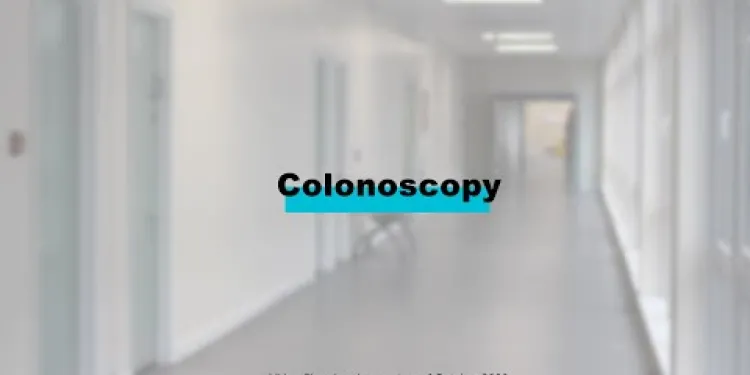
Endoscopy Procedures | Colonoscopy
Relevance: 100%
-
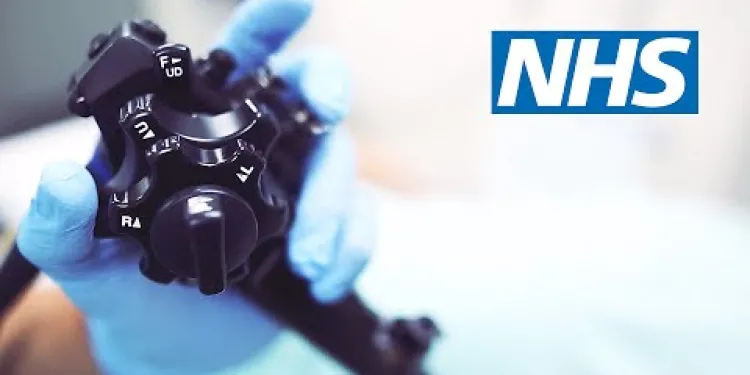
What happens during a colonoscopy?
Relevance: 95%
-
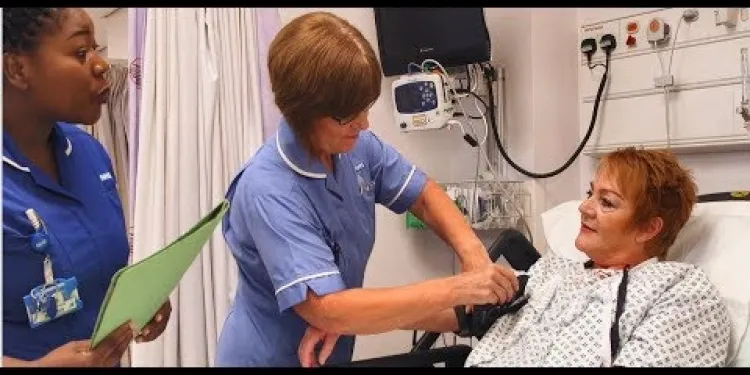
What to expect at your colonoscopy
Relevance: 94%
-
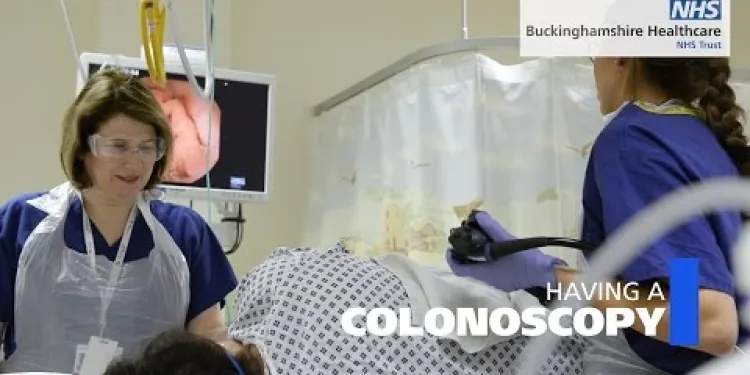
Having a colonoscopy in hospital - Patient Guide
Relevance: 91%
-
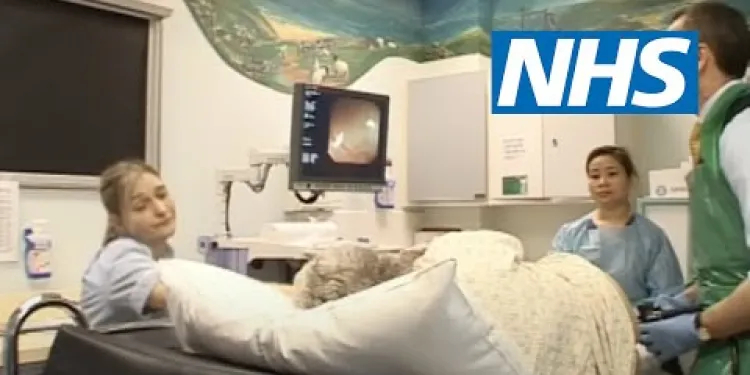
What happens during a colonoscopy? | NHS
Relevance: 91%
-
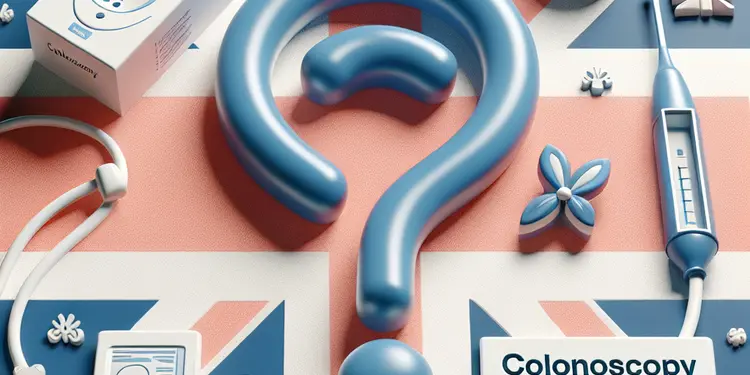
Is a colonoscopy necessary after a positive home test?
Relevance: 89%
-

Can home colorectal cancer tests replace a colonoscopy?
Relevance: 84%
-

What is a colonoscopy and how is it used in bowel cancer?
Relevance: 42%
-

What are the recommendations for colorectal cancer screening?
Relevance: 41%
-
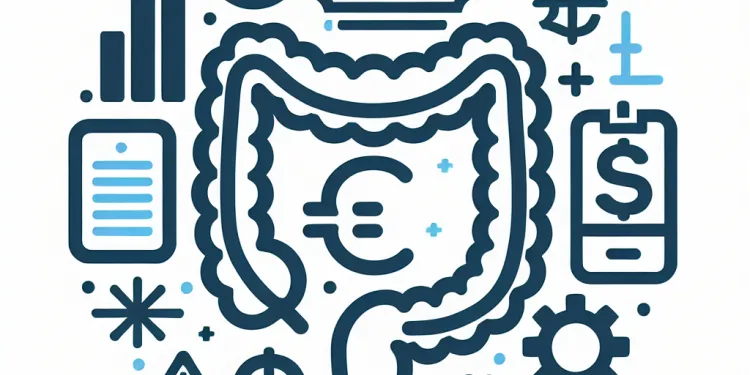
How is bowel cancer diagnosed?
Relevance: 38%
-

How can I test myself for colorectal cancer?
Relevance: 37%
-

What are the advantages of an at-home colorectal cancer test?
Relevance: 32%
-
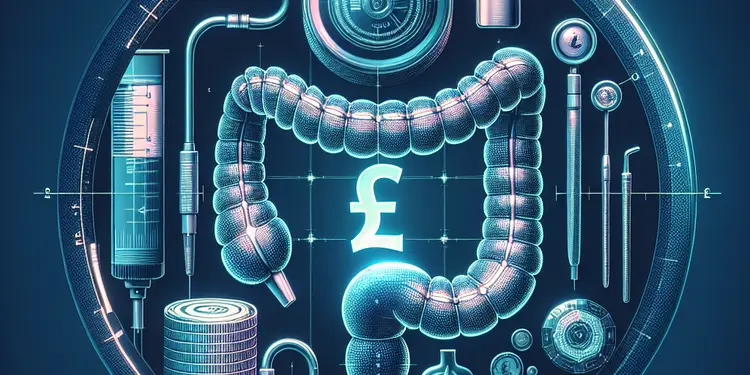
What is an endoscopy?
Relevance: 32%
-

What is a stool DNA test?
Relevance: 30%
-

Do I need a prescription to get a stool DNA test?
Relevance: 29%
-
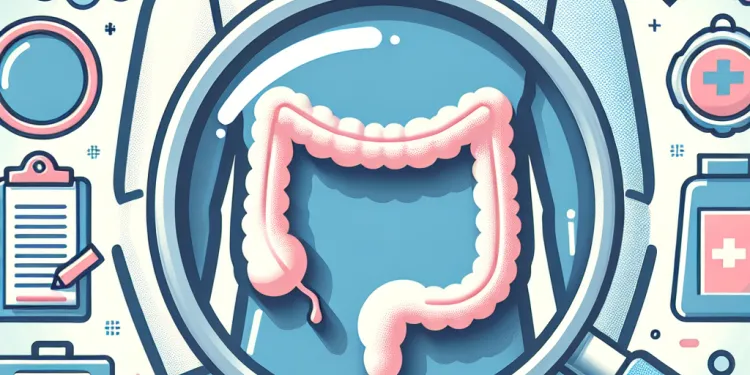
How is Crohn's disease diagnosed?
Relevance: 29%
-
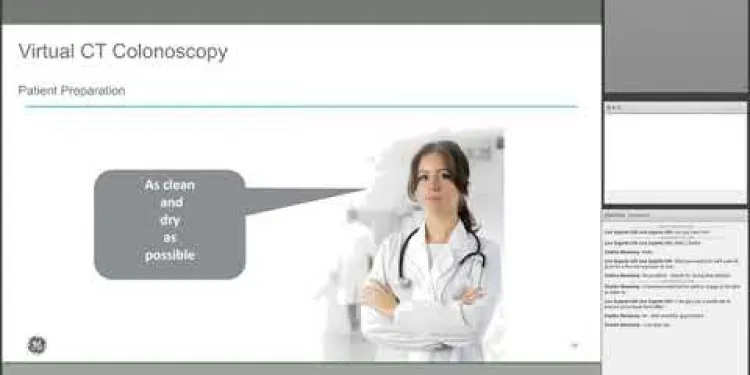
Live Expert CT Colonography YouTube
Relevance: 29%
-

Are there risks associated with home colorectal cancer tests?
Relevance: 28%
-

What is Bowel Cancer?
Relevance: 28%
-

What is colorectal cancer?
Relevance: 27%
-
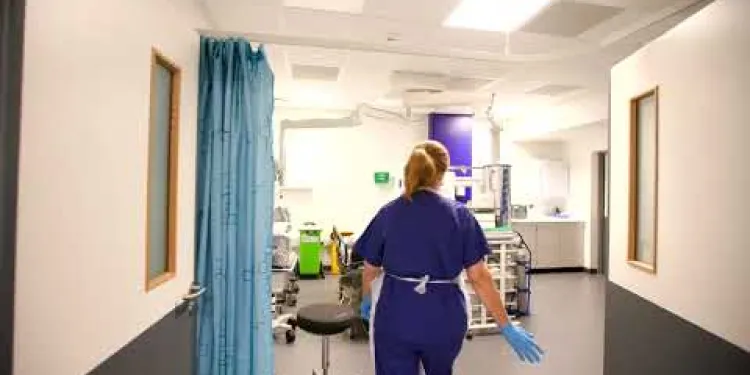
Endoscopy Unit
Relevance: 23%
-

What are the main methods for testing yourself for colorectal cancer?
Relevance: 22%
-

What is a CT colonography?
Relevance: 22%
-
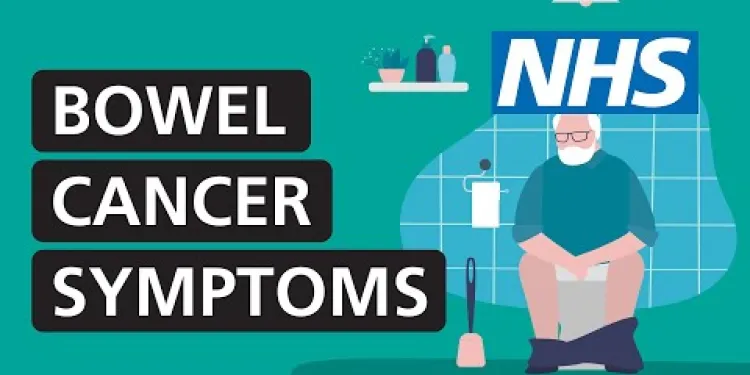
Bleeding from the bottom rectal bleeding
Relevance: 22%
-

What alternative methods exist to screen for colorectal cancer?
Relevance: 22%
-

Learn about bowel cancer (British Sign Language version)
Relevance: 21%
-
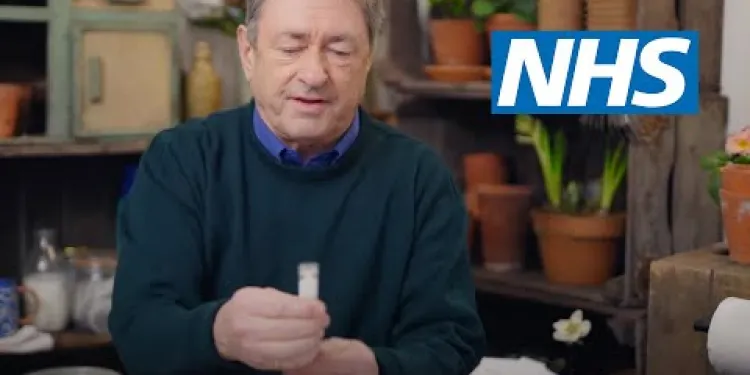
Bowel cancer screening: Alan Titchmarsh and Tommy Walsh | NHS
Relevance: 20%
-
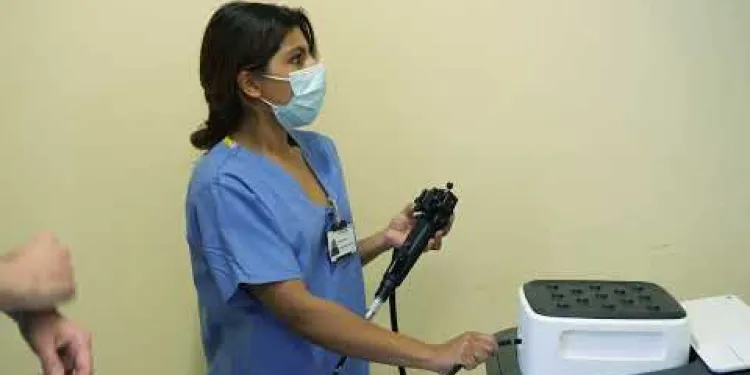
MTW Endoscopy service and training hub
Relevance: 20%
-
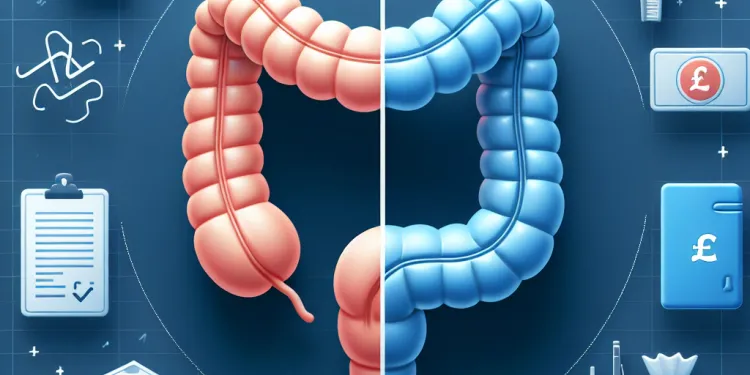
What is the difference between colon cancer and rectal cancer?
Relevance: 19%
-
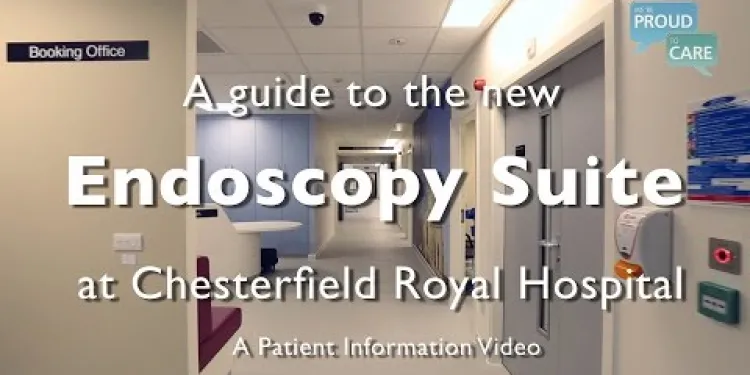
A guide to the new Endoscopy Suite at Chesterfield Royal Hospital NHS Foundation Trust
Relevance: 18%
-

Bleeding from the bottom rectal bleeding
Relevance: 18%
-

How to do the FIT bowel cancer screening test | Cancer Research UK
Relevance: 18%
-
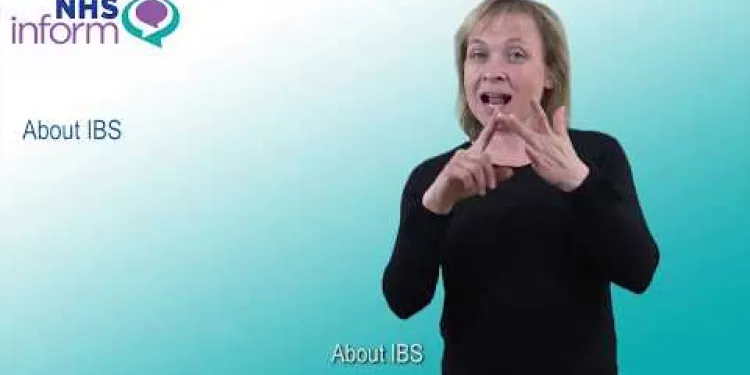
About irritable bowel syndrome (IBS)
Relevance: 18%
-
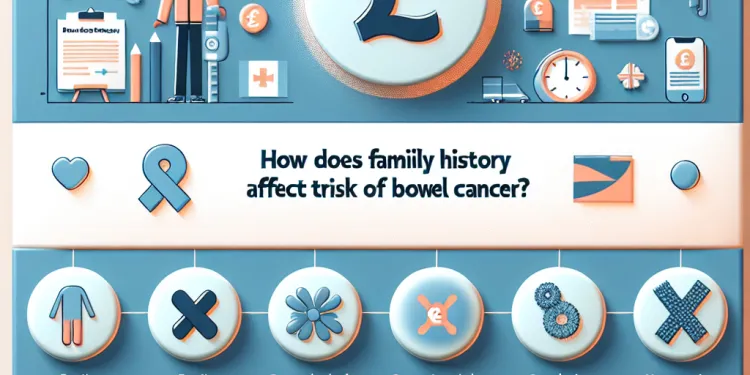
How does family history affect the risk of bowel cancer?
Relevance: 18%
-

How does increased screening impact bowel cancer statistics?
Relevance: 17%
-

What is a fecal occult blood test?
Relevance: 17%
-

Can I order a FIT test online?
Relevance: 17%
-
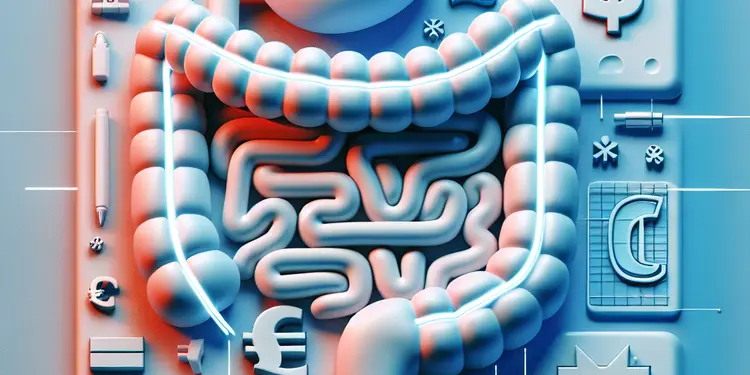
Are there specific gut-related diseases that become more common with age?
Relevance: 16%
-

What kinds of cancer screening are available?
Relevance: 16%
-

Will the test affect my menstrual cycle?
Relevance: 14%
What Happens During a Colonoscopy? | NHS
Introduction to Colonoscopy
A colonoscopy is a medical procedure used to examine the large intestine (colon) and rectum. It is primarily performed to investigate symptoms such as abdominal pain, rectal bleeding, or changes in bowel habits. Additionally, it can be used as a screening test for colorectal cancer. The procedure is often carried out by a gastroenterologist, a doctor specializing in digestive system disorders.
Preparation for the Procedure
Before undergoing a colonoscopy, patients need to prepare their bowels. This typically involves following a clear liquid diet for 24 to 48 hours before the examination. Patients will be instructed to avoid solid foods and dairy products, and instead consume clear broths, gelatin, and clear juices. Additionally, a laxative or an enema may be prescribed to ensure the colon is entirely clean, providing a clear view during the procedure.
During the Colonoscopy
On the day of the colonoscopy, patients need to attend a hospital or clinic. After arriving, they'll be asked to change into a hospital gown. Sedation or a light anaesthetic is usually administered to ensure comfort throughout the procedure. The patient is then asked to lie on their side, and a long, flexible tube called a colonoscope is gently inserted into the rectum. The colonoscope is equipped with a tiny camera, providing live images viewed on a monitor by the doctor.
The Examination Process
As the colonoscope is advanced through the colon, air is gently pumped to expand the bowels, giving a better view of the colon's lining. The doctor will carefully inspect the entire colon, looking for abnormalities such as polyps, which may be removed for further examination (biopsy). The procedure typically lasts between 30 minutes to an hour, depending on what is found and if polyps are removed.
Post-Procedure and Recovery
After the colonoscopy, patients are monitored for a short period while the sedative wears off. Commonly, there might be some cramping or bloating due to the air introduced during the procedure, but this usually subsides quickly. Patients are advised to rest for the remainder of the day and avoid driving due to the sedative effects. It's crucial to follow any post-procedure instructions from the healthcare provider, including resuming a normal diet and any prescribed medications.
Results and Follow-Up
If polyps or abnormal tissues were removed, they would be sent to a lab for further analysis, with results typically available within a few days. The doctor will discuss the findings and any necessary follow-up treatments or surveillance. Regular screening through colonoscopy is essential, especially for those over 50 or with a family history of colorectal cancer.
Conclusion
A colonoscopy is a vital and effective procedure for diagnosing and screening various gastrointestinal conditions and colorectal cancer. Proper preparation and following medical advice can ensure a smooth experience and accurate results. With the NHS providing comprehensive care, patients in the United Kingdom can have confidence in undergoing a colonoscopy when recommended by their healthcare provider.
What Happens During a Colonoscopy? | NHS
Introduction to Colonoscopy
A colonoscopy is a test done by doctors to look inside the large intestine, which is also called the colon, and the rectum. It helps find out why someone might have tummy pain, bleeding from the bottom, or changes in toilet habits. It can also check for signs of bowel cancer. A special doctor, called a gastroenterologist, does the test.
Preparation for the Procedure
Before the test, people need to get their bowels ready. This means they have to drink only clear liquids for 1 to 2 days before the test. This includes things like clear broth, jelly, and clear juices. They should not eat solid foods or have milk. A doctor might give a special drink or medicine to help clean out the colon, so the doctor can see clearly during the test.
During the Colonoscopy
On the day of the test, people go to the hospital or clinic. They change into a special gown. A doctor gives medicine to make them sleepy and comfortable. Then, they lie on their side, and a thin, bendy tube called a colonoscope is gently put into their bottom. The tube has a tiny camera that shows pictures on a screen, so the doctor can see inside the colon.
The Examination Process
While the colonoscope moves through the colon, air is puffed in to make the space bigger. This helps the doctor see the inside clearly. The doctor looks for anything unusual, like small growths called polyps. If the doctor finds polyps, they might take them out to check them later. The test usually takes about 30 minutes to 1 hour.
Post-Procedure and Recovery
After the test, people rest for a little while as the sleepy medicine wears off. They might feel a bit of cramping or bloating because of the air, but it goes away soon. They need to rest for the rest of the day and should not drive because of the sleepy medicine. It's important to listen to what the doctor says about eating and taking any medicines after the test.
Results and Follow-Up
If any polyps or strange tissues were taken out, they are checked in a lab. The results usually come in a few days. The doctor will talk about what they found and if more tests or treatments are needed. People over 50 or with family members who had bowel cancer should have regular colonoscopy tests.
Conclusion
A colonoscopy is an important test to check for bowel problems and bowel cancer. Getting ready properly and following the doctor’s advice helps make sure the test goes well and gives good results. People in the UK can feel safe having this test with the care and help of the NHS.
Frequently Asked Questions
What is a colonoscopy?
A colonoscopy is a medical procedure that examines the inside of your large bowel (colon) using a thin, flexible tube called a colonoscope with a small camera at the end.
Why might I need a colonoscopy?
You might need a colonoscopy if you have symptoms such as abdominal pain, rectal bleeding, persistent diarrhoea, or changes in bowel habits. It can also be used to screen for bowel cancer.
How should I prepare for a colonoscopy?
You might be advised to follow a special diet, take a laxative to clear your bowel, and avoid eating solid foods for a day before the procedure. Specific preparation instructions will be provided by your healthcare provider.
What happens during the procedure?
During the procedure, you’ll lie on your side and a sedative may be given to help you relax. The colonoscope is gently inserted into your rectum and guided through your colon. Air is pumped in to expand the colon for better visibility.
How long does a colonoscopy take?
The procedure itself typically takes about 30 to 45 minutes, but you should plan to be at the hospital or clinic for around 2 to 3 hours for preparation and recovery.
Will I be awake during a colonoscopy?
You may be given a sedative to help you relax and minimize discomfort. While you may not be fully asleep, you likely won’t be fully aware or remember much of the procedure.
Is a colonoscopy painful?
A colonoscopy shouldn’t be painful due to the use of sedatives and pain relief. You might feel some discomfort, bloating, or cramping during and after the procedure.
What are the risks of a colonoscopy?
While generally safe, risks include bleeding, infection, and perforation of the bowel. Serious complications are rare.
What are polyps and can they be removed during a colonoscopy?
Polyps are small growths that can develop on the inner lining of the colon. They can be benign or cancerous. If polyps are found, they can often be removed during the procedure and sent for testing.
What should I expect after a colonoscopy?
You may experience some bloating and cramping after the procedure. Rest for the remainder of the day and avoid driving or operating machinery if you’ve had a sedative.
When will I get the results of my colonoscopy?
Initial findings may be discussed immediately after the procedure. Biopsy results, if taken, typically take a few days to a week to be ready.
Can I eat and drink normally after a colonoscopy?
Yes, you can generally eat and drink normally after the effects of the sedative have worn off, but it’s best to start with light meals.
How often should I get a colonoscopy?
The frequency depends on factors like age, family history, and medical conditions. Typically, routine screenings are recommended every 10 years starting at age 50, but your doctor may provide different guidelines.
Is it normal to feel tired after a colonoscopy?
Yes, feeling tired is normal, especially if you’ve been given a sedative. Plan to rest for the remainder of the day.
What happens if something abnormal is found during my colonoscopy?
If something abnormal is found, such as polyps or suspicious tissues, they may be removed or biopsied during the procedure. Further treatment will depend on the biopsy results.
What is a colonoscopy?
A colonoscopy is a test. It helps doctors look inside the large intestine, also called the colon. Doctors use a long, thin tube with a tiny camera at the end. The camera shows pictures of the inside of the colon on a screen. This helps doctors check if everything is okay or if there are any problems.
Recommended tools and tips:
- A grown-up can help explain what the doctor will do.
- Watching a short video about colonoscopy can be helpful.
- If you have questions, you can ask your doctor or nurse for more information.
A colonoscopy is a check-up for your tummy. A doctor looks inside your big intestine. They use a long, bendy tube. The tube has a tiny camera to help them see.
Why do I need a colonoscopy?
A colonoscopy is a test.
Doctors use it to look inside your bottom and tummy.
This test helps the doctor see if everything is okay.
If you have tummy aches or see blood when you poo, you might need this test.
Don't worry, the doctor and nurse will take good care of you.
If you feel scared or worried, tell someone. They can help you feel better.
You can also watch a video or talk to someone who had the test to understand more.
You might need a special test called a colonoscopy if you have a tummy ache, bleeding from your bottom, or diarrhoea that doesn't stop. This test can also check for signs of bowel cancer.
How can I get ready for a colonoscopy?
A colonoscopy is a special test to look inside your belly. Here's how you can get ready:
- Talk to your doctor. They can help you understand what will happen.
- Eat light foods for a few days before the test. Ask your doctor what foods are best.
- You might need to drink a special drink that helps clean your belly. Follow the instructions carefully.
- Ask a friend or family member to come with you to the test. They can help you feel calm.
- If you have questions or feel worried, tell your doctor. They can explain things to help you feel better.
Using pictures can help you understand the steps. You can also ask someone to read this to you if it helps.
Your doctor might tell you to do some things before your test. You might eat special foods, take a medicine to clean your tummy, and not eat solid food the day before. Your doctor will give you clear instructions on what to do.
What happens during the procedure?
This is what will happen:
- You might sit or lie down.
- The doctor or nurse will explain everything to you.
- They will tell you if it might hurt a little.
- You can ask questions if you are unsure.
- You might have something to help you feel calm.
- The doctor or nurse will do the procedure.
- It might be quick or take some time.
- There might be some people to help.
- After, you can rest and ask for help if you need it.
To make things easier, try using:
- A friend to talk to about it.
- A toy or book to keep you busy.
- Deep breaths to stay calm.
- Ask lots of questions.
When the doctor checks your tummy, you will lie on your side. You might get medicine to help you stay calm and not feel worried. A small camera will be put in your bottom. It goes inside your tummy to look around and see that everything is okay. The doctor will gently blow air inside to make it easier to see.
How long does a colonoscopy take?
A colonoscopy is a test that doctors use to look inside your tummy. It helps them see if everything is okay.
The test usually takes about 30 minutes to 1 hour. Sometimes it might be a little quicker or take a bit longer.
If you have worries or questions about what will happen, you can talk to your doctor or nurse. They will help you understand better.
Try to stay calm and relax. It might help to bring a book or something to play with while you wait. A friend or family member can come with you to help you feel better.
The procedure usually lasts 30 to 45 minutes. But you should plan to be at the hospital or clinic for 2 to 3 hours. This time includes getting ready and resting afterward.
Will I be awake during a colonoscopy?
A colonoscopy is a test to look inside your tummy. The doctor uses a thin tube with a camera. Before the test, you might get medicine to make you very sleepy. This means you will not be awake or feel anything during the test. This medicine is called a sedative.
If you are worried, you can:
- Talk to your doctor. They can answer questions.
- Ask a family member or friend to come with you.
- Take deep breaths to relax.
You might get some medicine to help you feel calm and comfy. You won't be all the way asleep, but you probably won't notice or remember much about what's happening.
Does a colonoscopy hurt?
A colonoscopy is a test that doctors use to look inside your tummy. It helps them see if everything is okay.
Before the test, you will get medicine to help you relax and not feel much. So, most people do not feel pain during the test.
After the test, you might feel a bit uncomfortable in your tummy. This feeling usually goes away soon.
If you are worried about the test, you can talk to the doctor or nurse. They can help you feel better and answer your questions.
A colonoscopy should not hurt because doctors give you medicine to help you relax and not feel pain. You might feel a little uncomfortable, like your tummy is full or cramping, during and after the test.
Here are some tips to help you:
- Ask the doctor all your questions before the test.
- Take deep breaths if you feel uneasy during the test.
- Have someone you trust come with you to support you.
What could go wrong during a colonoscopy?
A colonoscopy is when a doctor looks inside your bottom to check it is healthy. Sometimes, things can go wrong. Here are some things to know:
- Belly Pain: Your tummy might hurt a little after the check-up.
- Bleeding: You could see a bit of blood when you go to the toilet.
- Feeling Sick: You might feel a bit unwell or dizzy.
- Hole in the Gut: This is rare, but a small hole could happen in your gut. Doctors can fix it.
If you feel worried, talk to your doctor. You can use special ways to help understand more, like:
- Ask someone you trust to help explain.
- Look at pictures or videos that show what happens.
This is usually safe. But sometimes you can get problems. You might bleed, get an infection, or make a hole in the bowel. These serious problems do not happen often.
What are polyps and can doctors take them out during a colonoscopy?
Polyps are little lumps that can grow inside your body. Doctors can find them in places like your tummy.
A colonoscopy is when a doctor looks inside your tummy with a special camera. During this test, doctors can find polyps and take them out if needed.
Talking to a doctor can help you understand more. You can also use pictures or ask someone to go with you to the doctor to help explain things.
Polyps are small lumps that can grow inside the colon. They can be harmless or can turn into cancer. If doctors find polyps, they can usually take them out and test them to see if they are safe.
What happens after a colonoscopy?
A colonoscopy is a test doctors use to check your belly. After the test, you might feel a bit sleepy or have some belly aches. It’s because of the medicine the doctor gave you to help you relax.
Here’s what you can do:
- Rest at home until you feel better. You might want to take the day off from school or work.
- Ask someone to stay with you to help out, as you might still feel sleepy.
- You might pass gas a lot. That’s normal! It helps your belly feel better.
Helpful tools:
- Use a hot water bottle to ease belly aches.
- Drink water to help keep you feeling good.
You might feel a bit full or have a tummy ache after the test. Take it easy and rest for the rest of the day. Don’t drive or use machines if you’ve taken any medicine to help you relax.
When will I get my colonoscopy results?
Doctors might talk about what they found right after the test. If they took a small piece of tissue, called a biopsy, it usually takes a few days to a week to know the results.
Tip: To make reading easier, use a tool that reads text out loud. This can help you understand better.
Can I eat and drink like normal after a colonoscopy?
After a colonoscopy, you might feel a bit different. It's best to start with easy-to-digest foods and drinks. You can try soup, crackers, and water or juice. Slowly return to your usual meals. If you feel unsure, ask a doctor or nurse. Make sure to take your time and listen to your body. Using pictures or a feelings chart can help you talk about how you feel.
Yes, you can eat and drink like usual when you feel better. It's good to start with small, easy meals.
How often should I have a colonoscopy?
A colonoscopy is a test for checking inside the large intestine. Most people need to have this test every 10 years, starting at age 45.
If you have a family history of bowel problems, or if you have had issues before, you might need to have the test more often. Talk to your doctor about when you need it.
To help you remember when to schedule your colonoscopy, you can:
- Set reminders on your calendar.
- Ask a family member or friend to remind you.
- Keep a note on your fridge or a place you see every day.
How often you need to get checked depends on things like how old you are, your family's health, and if you have any medical problems. Most people should get a check-up every 10 years once they turn 50. But your doctor might tell you something different.
Is it normal to feel tired after a colonoscopy?
Yes, feeling tired after a colonoscopy is okay. Resting can help you feel better. Ask someone to be with you if you need help. Try drinking water and eating light meals. If you want to know more, ask a nurse or doctor.
Yes, it is normal to feel tired. This happens if you have taken medicine to help you relax. Rest for the rest of the day.
What if the doctor finds something unusual during my colonoscopy?
If the doctor finds anything unusual, like small growths or strange tissues, they can take them out or test them right away. What happens next will depend on the test results.
Useful Links
This website offers general information and is not a substitute for professional advice.
Always seek guidance from qualified professionals.
If you have any medical concerns or need urgent help, contact a healthcare professional or emergency services immediately.
Some of this content was generated with AI assistance. We’ve done our best to keep it accurate, helpful, and human-friendly.
- Ergsy carfully checks the information in the videos we provide here.
- Videos shown by Youtube after a video has completed, have NOT been reviewed by ERGSY.
- To view, click the arrow in centre of video.
- Most of the videos you find here will have subtitles and/or closed captions available.
- You may need to turn these on, and choose your preferred language.
- Go to the video you'd like to watch.
- If closed captions (CC) are available, settings will be visible on the bottom right of the video player.
- To turn on Captions, click settings .
- To turn off Captions, click settings again.
More Items From Ergsy search
-

Endoscopy Procedures | Colonoscopy
Relevance: 100%
-

What happens during a colonoscopy?
Relevance: 95%
-

What to expect at your colonoscopy
Relevance: 94%
-

Having a colonoscopy in hospital - Patient Guide
Relevance: 91%
-

What happens during a colonoscopy? | NHS
Relevance: 91%
-

Is a colonoscopy necessary after a positive home test?
Relevance: 89%
-

Can home colorectal cancer tests replace a colonoscopy?
Relevance: 84%
-

What is a colonoscopy and how is it used in bowel cancer?
Relevance: 42%
-

What are the recommendations for colorectal cancer screening?
Relevance: 41%
-

How is bowel cancer diagnosed?
Relevance: 38%
-

How can I test myself for colorectal cancer?
Relevance: 37%
-

What are the advantages of an at-home colorectal cancer test?
Relevance: 32%
-

What is an endoscopy?
Relevance: 32%
-

What is a stool DNA test?
Relevance: 30%
-

Do I need a prescription to get a stool DNA test?
Relevance: 29%
-

How is Crohn's disease diagnosed?
Relevance: 29%
-

Live Expert CT Colonography YouTube
Relevance: 29%
-

Are there risks associated with home colorectal cancer tests?
Relevance: 28%
-

What is Bowel Cancer?
Relevance: 28%
-

What is colorectal cancer?
Relevance: 27%
-

Endoscopy Unit
Relevance: 23%
-

What are the main methods for testing yourself for colorectal cancer?
Relevance: 22%
-

What is a CT colonography?
Relevance: 22%
-

Bleeding from the bottom rectal bleeding
Relevance: 22%
-

What alternative methods exist to screen for colorectal cancer?
Relevance: 22%
-

Learn about bowel cancer (British Sign Language version)
Relevance: 21%
-

Bowel cancer screening: Alan Titchmarsh and Tommy Walsh | NHS
Relevance: 20%
-

MTW Endoscopy service and training hub
Relevance: 20%
-

What is the difference between colon cancer and rectal cancer?
Relevance: 19%
-

A guide to the new Endoscopy Suite at Chesterfield Royal Hospital NHS Foundation Trust
Relevance: 18%
-

Bleeding from the bottom rectal bleeding
Relevance: 18%
-

How to do the FIT bowel cancer screening test | Cancer Research UK
Relevance: 18%
-

About irritable bowel syndrome (IBS)
Relevance: 18%
-

How does family history affect the risk of bowel cancer?
Relevance: 18%
-

How does increased screening impact bowel cancer statistics?
Relevance: 17%
-

What is a fecal occult blood test?
Relevance: 17%
-

Can I order a FIT test online?
Relevance: 17%
-

Are there specific gut-related diseases that become more common with age?
Relevance: 16%
-

What kinds of cancer screening are available?
Relevance: 16%
-

Will the test affect my menstrual cycle?
Relevance: 14%


